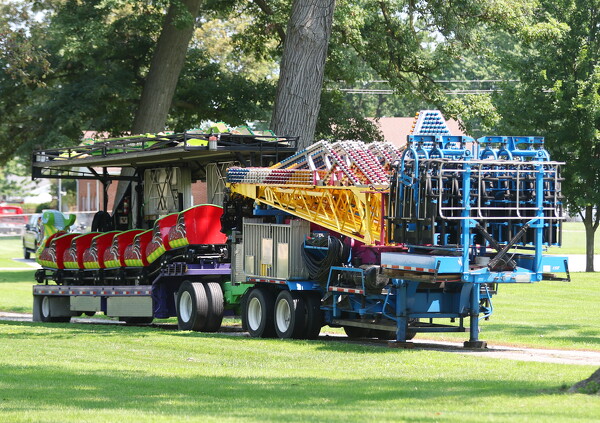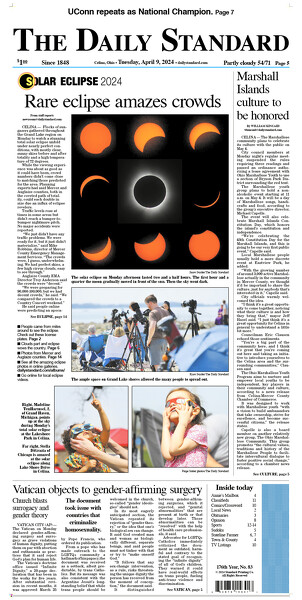Tuesday, August 5th, 2025
Celina BOE will ask voters to renew five-year levy
By William Kincaid
CELINA - School board members have moved to place a five-year emergency renewal levy on the Nov. 4 general election ballot.
At a special meeting last week, board members approved a resolution to proceed with the levy, which they consider a crucial funding source. Generating $4.9 million or about 15% of the district's annual budget, the levy is set to expire at the end of the year.
The filing deadline for local questions and issues to appear on the general election is Wednesday.
Getting the levy passed is of paramount importance, particularly in light of the $1.6 million in funding Celina City Schools stands to lose with the state's newly enacted biennial budget, superintendent Brooke Gessler said.
"Once you lose that, you never get it back," she said. "I do know there are some other line items that the governor vetoed that both the Senate and the House are looking to override and so those have financial implications for the district, especially when it comes to levies."
That's what makes the levy so important, Gessler noted.
"Because we will likely continue to see a loss of funding that comes our way," she said. "So to lose an additional over $4.9 million on top of what we already know would be just shy of devastating. We would have to make some really, really, really big shifts in what we do and how we do it, because that's a big chunk of money."
The emergency levy was last renewed in November 2020 at about 11.1 mills, then costing the owner of a $100,000 home about $388.50 annually. The levy makes up 32.9% of the district's total property tax revenue.
"It's a fixed sum that the millage gets adjusted accordingly to make sure that we only collect what that fixed sum dollar (amount) is supposed to be," she said.
Back in May, school treasurer Michelle Mawer recommended that school board members pursue a replacement substitute levy rather than a renewal emergency levy, which collects a specific dollar amount.
A replacement substitute levy, she explained, would see revenue growth from new construction in the district's property tax base. For instance, in fiscal year 2024, there was $3.7 million in new construction in the school district, which would have brought in an additional $10,000 in revenue under a substitute levy, according to Mawer.
Moreover, a replacement substitute levy would do away with the word "emergency," which some voters may find confusing, and could be run for up to 10 years, enabling board members to more consistently budget over the long run.
In the end, though, school board members settled on seeking an emergency renewal levy, rather than a replacement substitute levy.
"Because that has never been done in the district, and it's really not widely seen across the state, there was a concern about the education that would need to happen so that voters understood exactly what this meant and what they were voting on," Gessler said.
Most importantly, board members didn't want to do anything that could sow distrust among the electorate.
"So that's when the board decided to just stay with the emergency renewal … just to stay the course," Gessler said.

